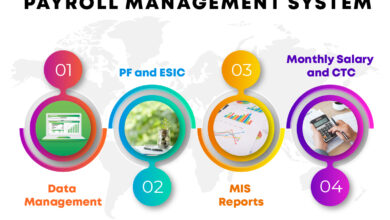The Essential Guide to PEO in HR: What Does PEO Stand For?

Whether you need to hire or have already hired remote employees, working with a PEO can help ease some of your workload. They take time-consuming, complex HR tasks off your hands and can also reduce the risk of costly payroll mistakes.
When choosing a PEO, consider their track record, industry experience, and reputation. You should also assess their data security, customer support, and technology platform.
What is a PEO?
When companies outsource some or all of their HR functions to a PEO, they often save time and money. These organizations can handle payroll, withhold and file taxes, withhold and report workers’ compensation insurance, and perform other administrative tasks. For a fee, they can also provide a wide range of employee benefits, such as health, dental, and vision coverage, flexible spending account (FSA) plans, life insurance, 401(k) retirement planning, and commuter benefits.
The most crucial step in finding the right PEO service provider is understanding what your company wants to accomplish by partnering with one. List the services you need, and then find providers that offer those options. Some providers may specialize in certain areas, so it’s worth taking the time to research their offerings, pricing, and reputation.
In human resources, individuals frequently ask, What does PEO stand for in HR? as they seek clarification on the role and functions of a Professional Employer Organization, which encompasses services like HR outsourcing, payroll management, and employee benefits administration.
As part of the process, the PEO becomes the employer of record for your employees in co-employment. This means they can hire and fire your employees, which may be a significant change if you’re used to running your business hands-on. The PEO’s service agreement will spell out the responsibilities of both parties, and you should carefully review it before signing. The contract should also include a breakdown of the costs of the services and a guarantee that the provider will meet all applicable laws.
PEO Definition
A PEO is an HR services company that manages many of your human resource responsibilities and employer liabilities so you can focus on your business. A PEO assumes responsibility for some of your payroll taxes and workers’ compensation insurance. The services they provide and their responsibilities are outlined in an agreement, often called a client service agreement (CSA). Your employees’ legal employer is now the PEO, but you retain control over recruiting and firing practices.
The CSA also establishes a co-employment relationship, so your employees appear on the PEO’s employment records and are paid through their tax identification numbers. While you can still fire your employees, you retain managerial oversight over your day-to-day operations and employee handbook.
PEOs also handle much of your compliance and risk management to help minimize liability. They’re accommodating for small businesses that don’t have an in-house HR team to manage all the responsibilities and paperwork.
Some PEOs offer a wide range of employee advantages to draw in and keep your best talent, including flexible work schedules, pet insurance, and even life insurance. They also may provide a competitive buying power on health and workers’ comp to help you stay competitive in the marketplace. They may also have a more robust technology stack to help you with your hiring and performance management needs.
PEO Benefits
Managing global human resources can be a complex and time-consuming task. There is much to track, including payroll processing, deductions, employee benefits, generating reports, and tax filings. Errors in these domains may result in expensive litigation, so harming a business’s standing. A PEO can help you avoid these problems by providing a single point of contact for your HR needs.
A good PEO has a team of experts that will take care of compliance with local, state, and federal employment laws for you. They’ll ensure you correctly classify employees, distribute wages, and comply with equal opportunity laws. A PEO can also help you mitigate the risk of a lawsuit by sharing liability for specific employment-related claims, like wrongful termination.
Many small businesses seek ways to reduce their administrative burden without hiring a full-time HR manager. One option is to work with a PEO, which can provide cost savings by using economies of scale to get better workers’ compensation and health insurance rates. They can also provide a wide range of extra benefits to workers, like flexible spending accounts and benefits for commuting. They typically take a percentage of your payroll or a fixed monthly cost. Usually, the rate covers local, state, and federal taxes in addition to employer practice liability insurance and workers’ compensation.
PEO Costs
A PEO can be an excellent solution for any business, including tiny businesses that need help with more complex HR tasks and larger companies that want to save on employee benefits. However, it’s essential for business leaders to carefully weigh the pros and cons of a PEO before making a decision.
There are many factors to consider when evaluating the cost of a PEO, including fees for HR services and other costs such as workers’ compensation. It’s also important to consider the potential savings from reduced insurance rates, administrative costs, and other expenses. To get the most accurate picture, businesses should use a price and savings calculator that considers all of these factors to help them make the best decision for their business.
One drawback of a PEO is that they may limit company control by taking on some employer responsibilities under the terms of their co-employment agreement. This can frustrate some companies that prefer complete control of their HR operations.
Additionally, some PEOs charge bundled rates for their services. This can make it difficult for businesses to know exactly what they’re paying for and whether the fee is fair. It’s recommended that companies find a PEO that offers unbundled billing so they can easily understand what they are getting for their money.



